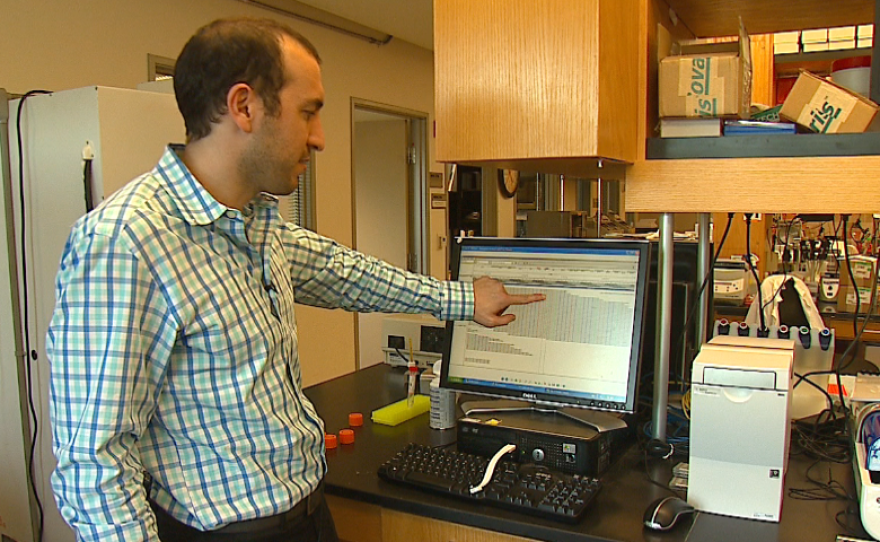In a new study, San Diego scientists show that genetic testing can often give families answers when a loved one suddenly dies.
But sometimes the answers provided by these "molecular autopsies" lead to new questions. And in many cases, unexplained deaths can't be linked with DNA at all.
"Molecular autopsies can explain a reasonable proportion of sudden death, but not all sudden death," said Ali Torkamani, a Scripps Translational Science Institute researcher who co-authored the study with other Scripps scientists and medical examiners from the San Diego County Medical Examiner's office.
The study, published Tuesday in JAMA, used gene sequencing to analyze 25 cases of unexpected sudden death in people aged 45 or younger. The goal was to pinpoint genetic mutations that could have caused the death, and to give that information back to surviving family members who may also carry the potentially lethal mutation.
The researchers broke down the results into four categories. In 16 percent of the cases, they could confidently pinpoint a "likely" genetic explanation for the death. This category included the case of a man who died at 29 from sudden heart failure linked with a mutation on the gene TRPM4. Earlier this year, KPBS covered how this discovery is affecting his surviving family members, including his mother Dardie Robinson.
In another 24 percent of the cases, the researchers identified a "plausible" genetic cause of death. Twenty-eight percent of cases yielded a "speculative" genetic discovery, meaning the researchers found a mutation that could be logically linked with sudden death, but not with a high degree of confidence.
That left nearly a third of cases unsolved. Thirty-two percent of the time, the researchers found no link whatsoever between sudden death and DNA.
Torkamani notes that this approach is still fairly new, so it's possible that he and his colleagues missed killer genes due to a shortage of existing data on the topic. But, he admitted, "a lot of the answers are not as clear as one would hope they would be."
Torkamani said he was also surprised to find that 70 percent of the deadly mutations were also found in a parent who has not succumbed to sudden death. In other words, these deadly mutations weren't entirely new — they could have been lurking in a family's DNA for generations.
"That actually makes it a little more challenging to identify the cause of death," Torkamani said. "Because now you have living family members with what we believe to be the pathogenic mutation, but they appear to be perfectly normal and healthy."
This ambiguous situation can lead to complicated questions for surviving family members. Should they get tested to find out if they also carry the mutation? And if they do have it, are there any steps they can take to reduce their risk of sudden death? Will their health insurance cover the cost of these preventative measures?
By participating in this study, Dardie Robinson discovered she also carries the mutation linked with her son's death. She has urged her children to get tested too, and has considered getting a surgically implanted device to protect herself from the sudden heart failure that killed her son.
Torkamani says the family members who participated in this study often just wanted to know what happened to their loved one, regardless of their own genetic risk.
"They maybe get a sense of relief," Torkamani said. "It helps provide a sense of closure when you can provide some information."







